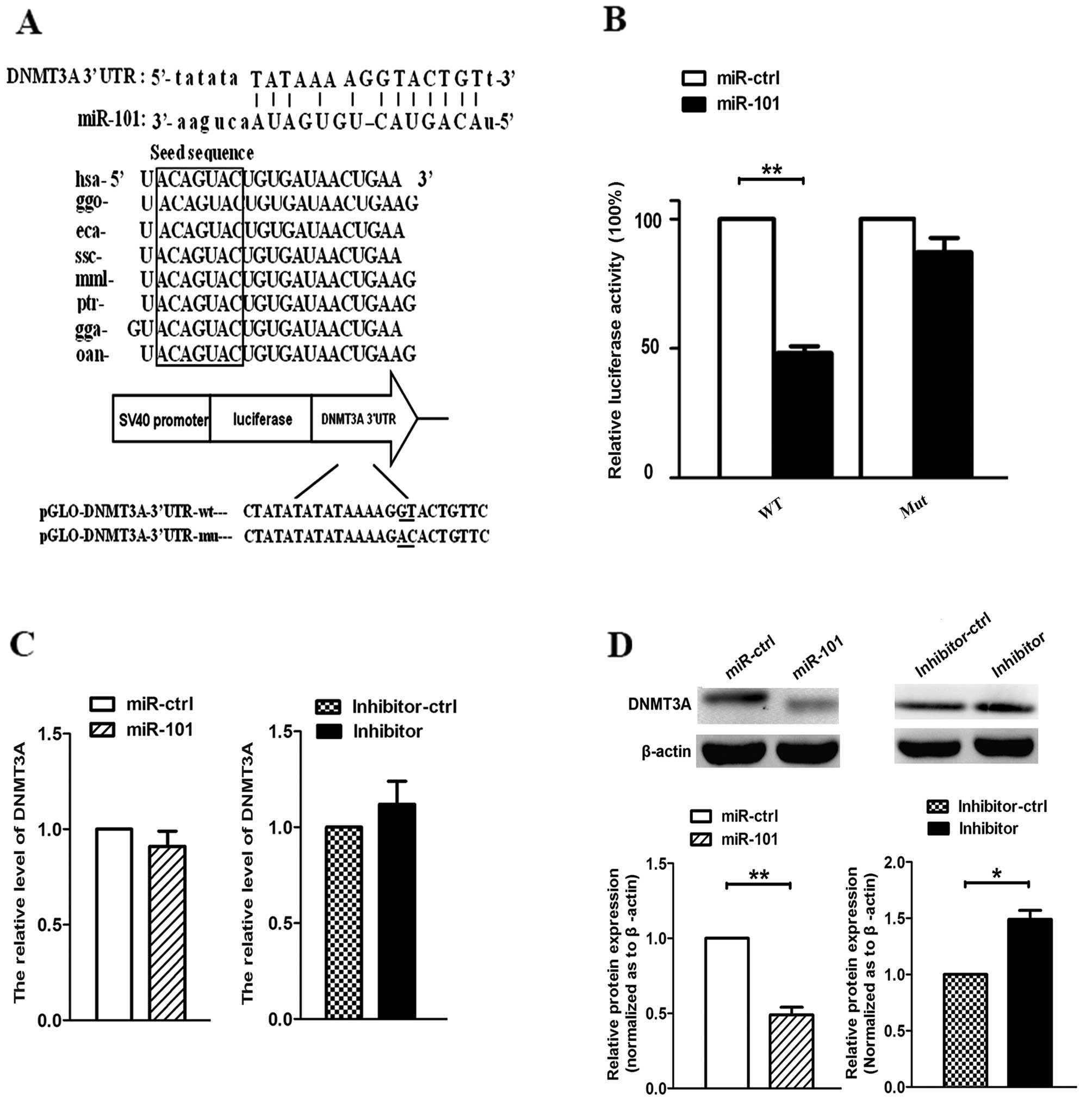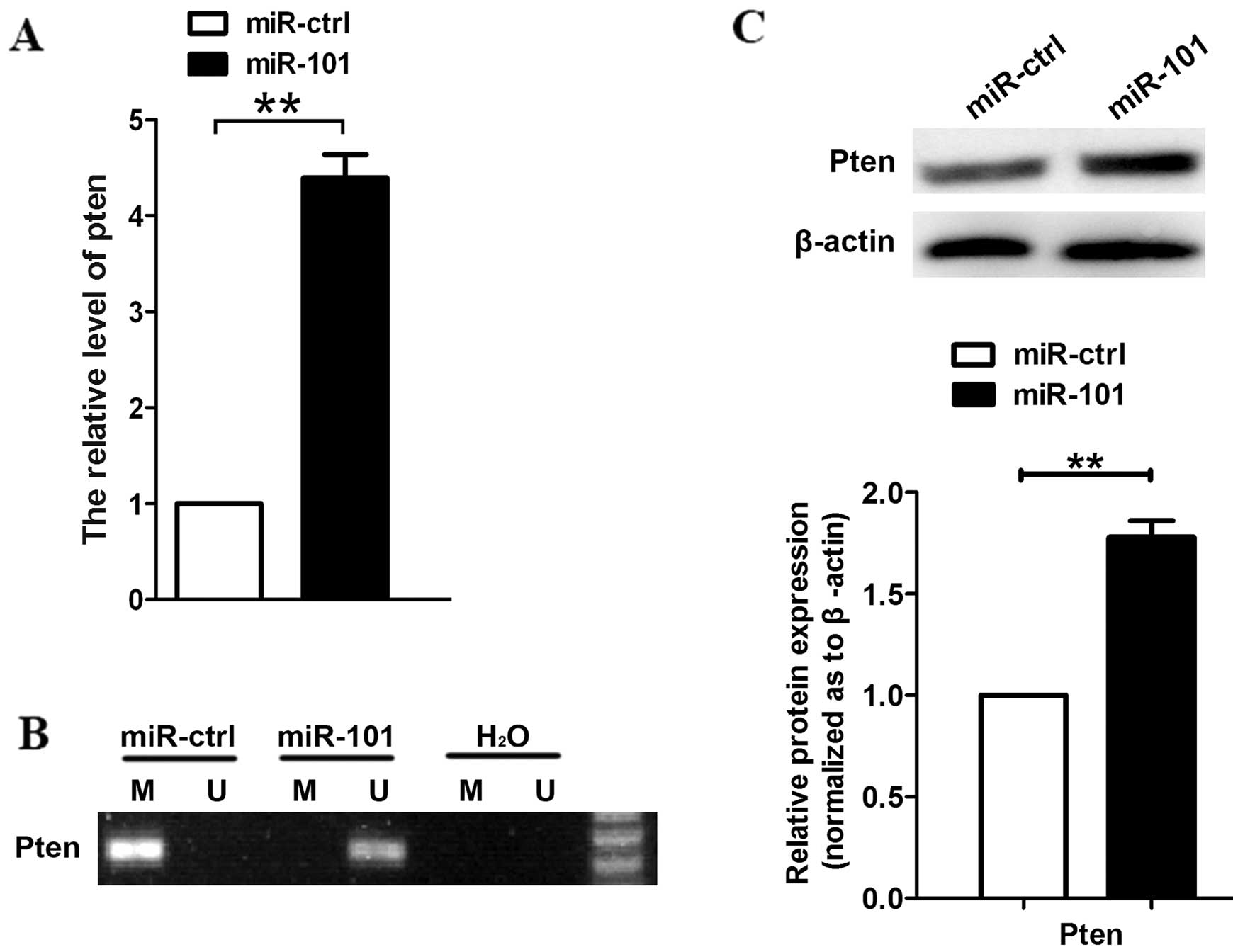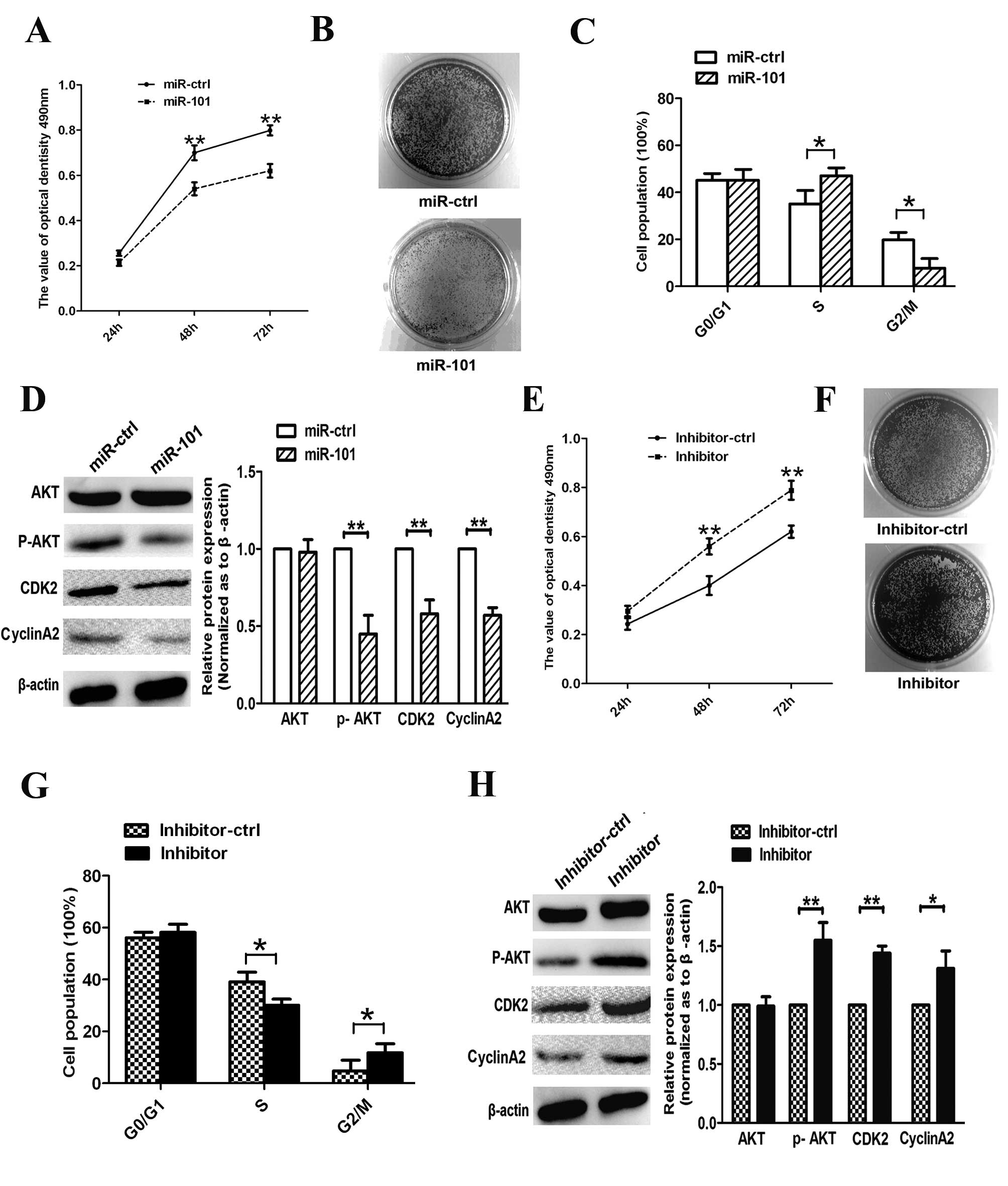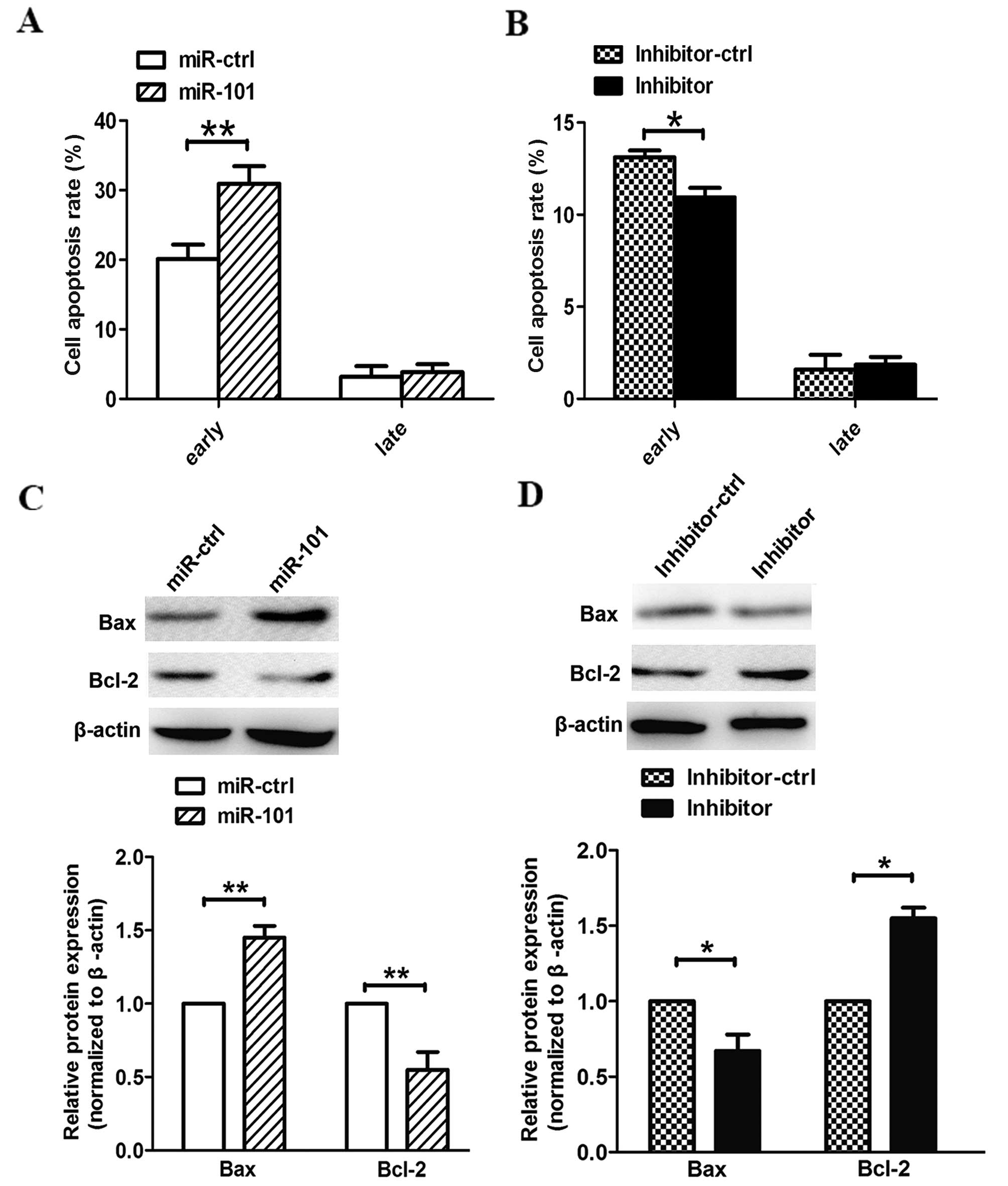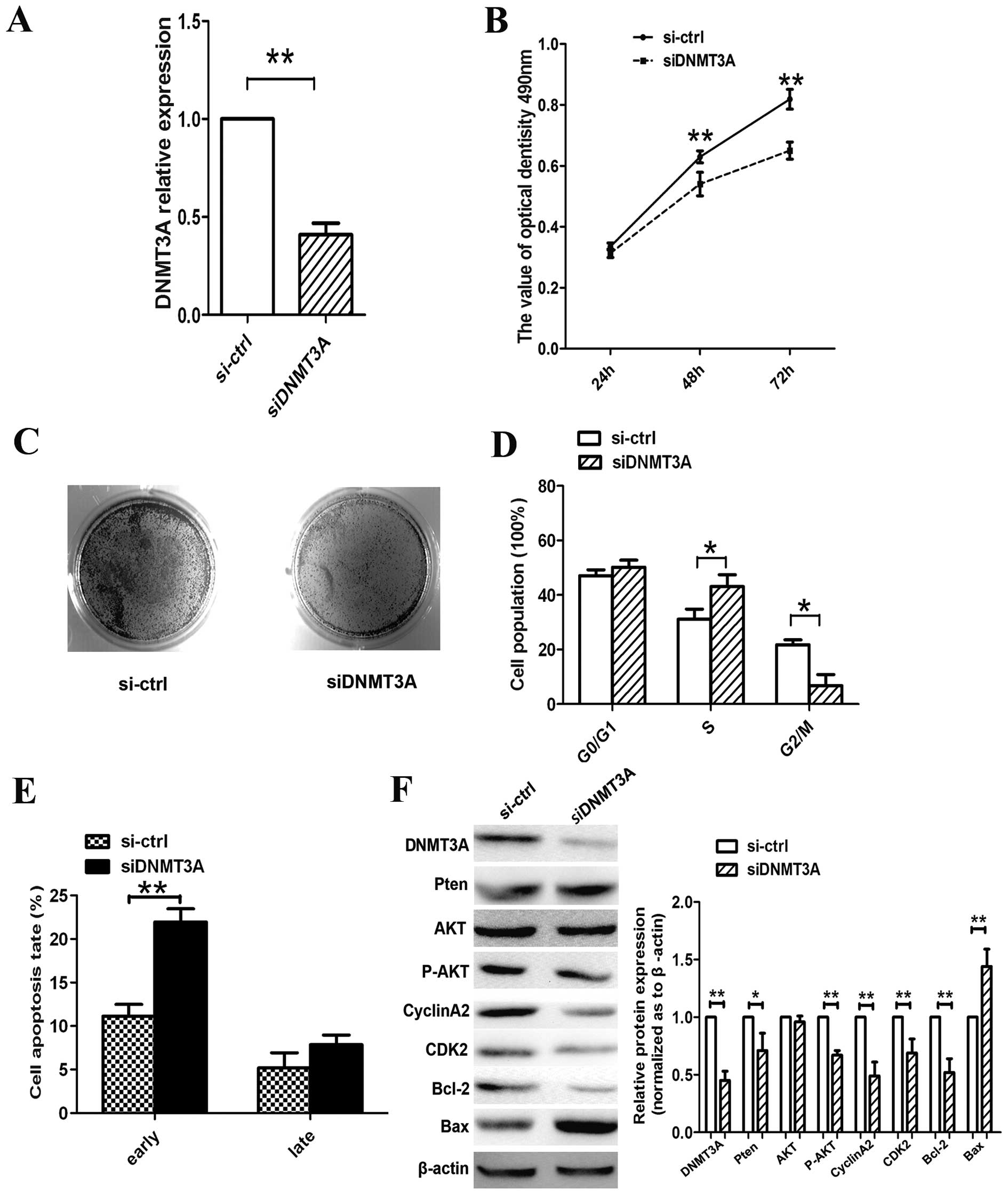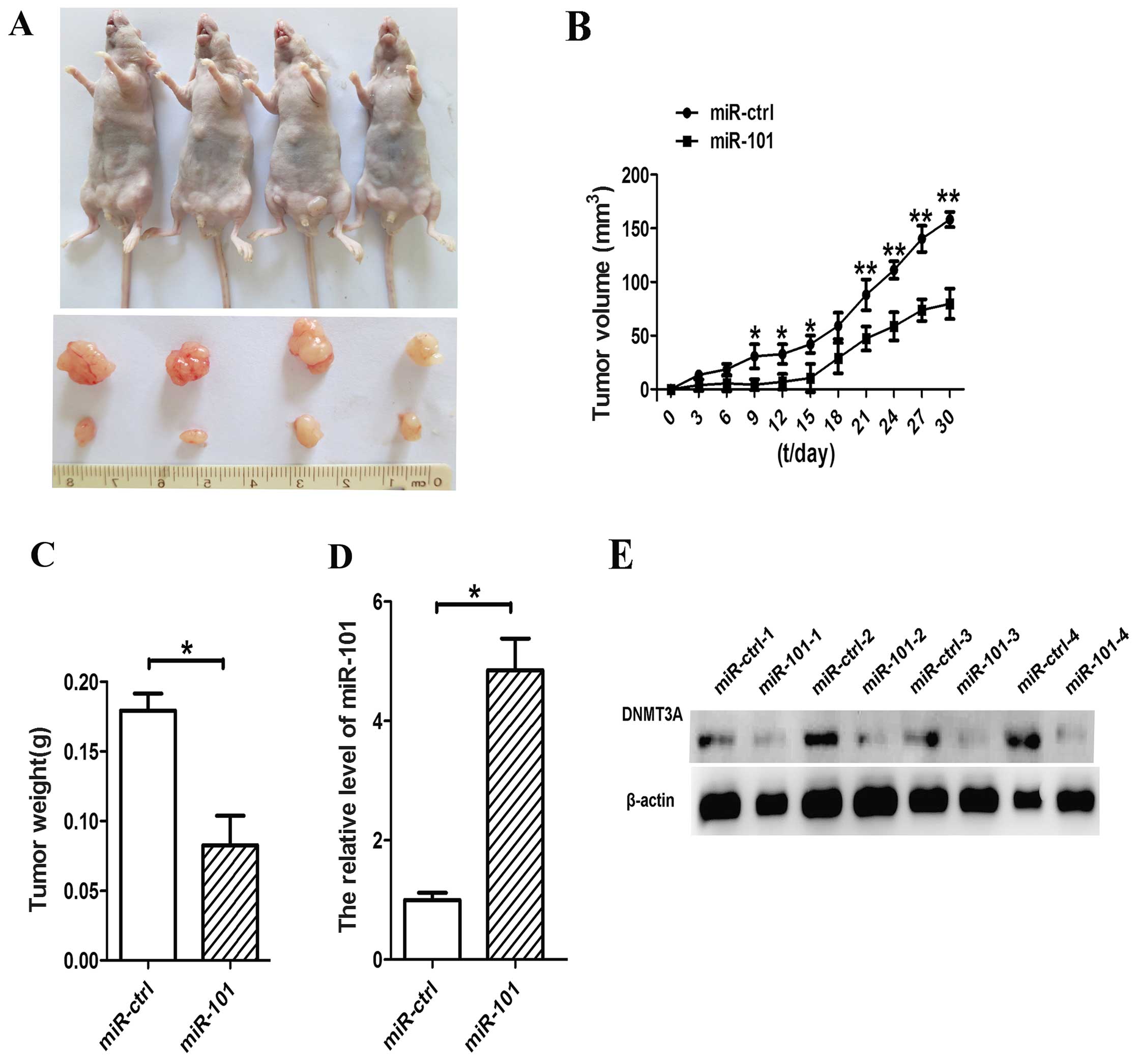|
1
|
Ohgane J, Aikawa J, Ogura A, Hattori N,
Ogawa T and Shiota K: Analysis of CpG islands of trophoblast giant
cells by restriction landmark genomic scanning. Dev Genet.
22:132–140. 1998. View Article : Google Scholar : PubMed/NCBI
|
|
2
|
Song F, Smith JF, Kimura MT, Morrow AD,
Matsuyama T, Nagase H and Held WA: Association of tissue-specific
differentially methylated regions (TDMs) with differential gene
expression. Proc Natl Acad Sci USA. 102:3336–3341. 2005. View Article : Google Scholar : PubMed/NCBI
|
|
3
|
Klose RJ and Bird AP: Genomic DNA
methylation: the mark and its mediators. Trends Biochem Sci.
31:89–97. 2006. View Article : Google Scholar : PubMed/NCBI
|
|
4
|
Goldberg AD, Allis CD and Bernstein E:
Epigenetics: a landscape takes shape. Cell. 128:635–638. 2007.
View Article : Google Scholar : PubMed/NCBI
|
|
5
|
Turek-Plewa J and Jagodziński PP: The role
of mammalian DNA methyltransferases in the regulation of gene
expression. Cell Mol Biol Lett. 10:631–647. 2005.PubMed/NCBI
|
|
6
|
Li Y and Tollefsbol TO: Impact on DNA
methylation in cancer prevention and therapy by bioactive dietary
components. Curr Med Chem. 17:2141–2151. 2010. View Article : Google Scholar : PubMed/NCBI
|
|
7
|
Zhao Z, Wu Q, Cheng J, Qiu X, Zhang J and
Fan H: Depletion of DNMT3A suppressed cell proliferation and
restored PTEN in hepatocellular carcinoma cell. J Biomed
Biotechnol. 2010:7375352010. View Article : Google Scholar : PubMed/NCBI
|
|
8
|
Starlard-Davenport A, Kutanzi K, Tryndyak
V, Word B and Lyn-Cook B: Restoration of the methylation status of
hypermethylated gene promoters by microRNA-29b in human breast
cancer: a novel epigenetic therapeutic approach. J Carcinog.
12:152013. View Article : Google Scholar : PubMed/NCBI
|
|
9
|
Fabbri M, Garzon R, Cimmino A, Liu Z,
Zanesi N, Callegari E, Liu S, Alder H, Costinean S,
Fernandez-Cymering C, et al: MicroRNA-29 family reverts aberrant
methylation in lung cancer by targeting DNA methyltransferases 3A
and 3B. Proc Natl Acad Sci USA. 104:15805–15810. 2007. View Article : Google Scholar : PubMed/NCBI
|
|
10
|
Bartel DP: MicroRNAs: genomics,
biogenesis, mechanism, and function. Cell. 116:281–297. 2004.
View Article : Google Scholar : PubMed/NCBI
|
|
11
|
Wiemer EA: The role of microRNAs in
cancer: no small matter. Eur J Cancer. 43:1529–1544. 2007.
View Article : Google Scholar : PubMed/NCBI
|
|
12
|
Wienholds E and Plasterk RH: MicroRNA
function in animal development. FEBS Lett. 579:5911–5922. 2005.
View Article : Google Scholar : PubMed/NCBI
|
|
13
|
Liu W, Mao SY and Zhu WY: Impact of tiny
miRNAs on cancers. World J Gastroenterol. 13:497–502. 2007.
View Article : Google Scholar : PubMed/NCBI
|
|
14
|
Oakley EJ and Van Zant G: Unraveling the
complex regulation of stem cells: implications for aging and
cancer. Leukemia. 21:612–621. 2007.PubMed/NCBI
|
|
15
|
Shen Q, Bae HJ, Eun JW, Kim HS, Park SJ,
Shin WC, Lee EK, Park S, Park WS, Lee JY, et al: MiR-101 functions
as a tumor suppressor by directly targeting nemo-like kinase in
liver cancer. Cancer Lett. 344:204–211. 2014. View Article : Google Scholar : PubMed/NCBI
|
|
16
|
Xiaoping L, Zhibin Y, Wenjuan L, Zeyou W,
Gang X, Zhaohui L, Ying Z, Minghua W and Guiyuan L: CPEB1, a
histone-modified hypomethylated gene, is regulated by miR-101 and
involved in cell senescence in glioma. Cell Death Dis. 4:e6752013.
View Article : Google Scholar : PubMed/NCBI
|
|
17
|
Yin J, Wang M, Jin C and Qi Q: miR-101
sensitizes A549 NSCLC cell line to CDDP by activating caspase
3-dependent apoptosis. Oncol Lett. 7:461–465. 2014.PubMed/NCBI
|
|
18
|
Wang L, Yao J, Zhang X, Guo B, Le X,
Cubberly M, Li Z, Nan K, Song T and Huang C: miRNA-302b suppresses
human hepatocellular carcinoma by targeting AKT2. Mol Cancer Res.
12:190–202. 2014. View Article : Google Scholar : PubMed/NCBI
|
|
19
|
Yu YY, Chen C, Kong FF and Zhang W:
Clinicopathological significance and potential drug target of RUNX3
in breast cancer. Drug Des Devel Ther. 8:2423–2430. 2014.PubMed/NCBI
|
|
20
|
Wang D, Cui W, Wu X, Qu Y, Wang N, Shi B
and Hou P: RUNX3 site-specific hypermethylation predicts papillary
thyroid cancer recurrence. Am J Cancer Res. 4:725–737.
2014.PubMed/NCBI
|
|
21
|
Ma QL, Wang JH, Wang YG, Hu C, Mu QT, Yu
MX, Wang L, Wang DM, Yang M, Yin XF, et al: High IDH1 expression is
associated with a poor prognosis in cytogenetically normal acute
myeloid leukemia. Int J Cancer. 137:1058–1065. 2015. View Article : Google Scholar : PubMed/NCBI
|
|
22
|
Cao XY, Ma HX, Shang YH, Jin MS, Kong F,
Jia ZF, Cao DH, Wang YP, Suo J and Jiang J: DNA methyltransferase3a
expression is an independent poor prognostic indicator in gastric
cancer. World J Gastroenterol. 20:8201–8208. 2014. View Article : Google Scholar : PubMed/NCBI
|
|
23
|
Huang P, Ye B, Yang Y, Shi J and Zhao H:
MicroRNA-181 functions as a tumor suppressor in non-small cell lung
cancer (NSCLC) by targeting Bcl-2. Tumour Biol. 36:3381–3387. 2015.
View Article : Google Scholar : PubMed/NCBI
|
|
24
|
Mataki H, Seki N, Chiyomaru T, Enokida H,
Goto Y, Kumamoto T, Machida K, Mizuno K, Nakagawa M and Inoue H:
Tumor-suppressive microRNA-206 as a dual inhibitor of MET and EGFR
oncogenic signaling in lung squamous cell carcinoma. Int J Oncol.
46:1039–1050. 2015.PubMed/NCBI
|
|
25
|
Lin C, Huang F, Li QZ and Zhang YJ:
miR-101 suppresses tumor proliferation and migration and induces
apoptosis by targeting EZH2 in esophageal cancer cells. Int J Clin
Exp Pathol. 7:6543–6550. 2014.PubMed/NCBI
|
|
26
|
Liu L, Guo J, Yu L, Cai J, Gui T, Tang H,
Song L, Wang J, Han F, Yang C, et al: miR-101 regulates expression
of EZH2 and contributes to progression of and cisplatin resistance
in epithelial ovarian cancer. Tumour Biol. 35:12619–12626. 2014.
View Article : Google Scholar : PubMed/NCBI
|
|
27
|
Lei YM, Zu YF, Wang J, et al:
Interleukin-1β-mediated suppression of microRNA-101 and
upregulation of enhancer of zeste homolog 2 is involved in
particle-induced lung cancer. Med Oncol. 32:3872015. View Article : Google Scholar : PubMed/NCBI
|
|
28
|
Chaar I, Amara S, Elamine OE, Khiari M,
Ounissi D, Khalfallah T, Ben Hmida A, Mzabi S and Bouraoui S:
Biological significance of promoter hypermethylation of p14/ARF
gene: relationships to p53 mutational status in Tunisian population
with colorectal carcinoma. Tumour Biol. 35:1439–1449. 2014.
View Article : Google Scholar : PubMed/NCBI
|
|
29
|
Camacho CV, Mukherjee B, McEllin B, Ding
LH, Hu B, Habib AA, Xie XJ, Nirodi CS, Saha D, Story MD, et al:
Loss of p15/Ink4b accompanies tumorigenesis triggered by complex
DNA double-strand breaks. Carcinogenesis. 31:1889–1896. 2010.
View Article : Google Scholar : PubMed/NCBI
|
|
30
|
Korah R, Healy JM, Kunstman JW, Fonseca
AL, Ameri AH, Prasad ML and Carling T: Epigenetic silencing of
RASSF1A deregulates cytoskeleton and promotes malignant behavior of
adrenocortical carcinoma. Mol Cancer. 12:872013. View Article : Google Scholar : PubMed/NCBI
|
|
31
|
Hamada K, Kohno T, Takahashi M, Yamazaki
M, Yamazaki M, Tashiro H, Sugawara C, Ohwada S, Sekido Y, Minna JD,
et al: Two regions of homozygous deletion clusters at chromosome
band 9p21 in human lung cancer. Genes Chromosomes Cancer.
27:308–318. 2000. View Article : Google Scholar : PubMed/NCBI
|
|
32
|
Hayashi N, Sugimoto Y, Tsuchiya E, Ogawa M
and Nakamura Y: Somatic mutations of the MTS (multiple tumor
suppressor) 1/CDK4l (cyclin-dependent kinase-4 inhibitor) gene in
human primary non-small cell lung carcinomas. Biochem Biophys Res
Commun. 202:1426–1430. 1994. View Article : Google Scholar : PubMed/NCBI
|
|
33
|
Burbee DG, Forgacs E, Zöchbauer-Muller S,
Shivakumar L, Fong K, Gao B, Randle D, Kondo M, Virmani A, Bader S,
et al: Epigenetic inactivation of RASSF1A in lung and breast
cancers and malignant phenotype suppression. J Natl Cancer Inst.
93:691–699. 2001. View Article : Google Scholar : PubMed/NCBI
|
|
34
|
Salmena L, Carracedo A and Pandolfi PP:
Tenets of PTEN tumor suppression. Cell. 133:403–414. 2008.
View Article : Google Scholar : PubMed/NCBI
|
|
35
|
Maehama T and Dixon JE: The tumor
suppressor, PTEN/MMAC1, dephosphorylates the lipid second
messenger, phosphatidylinositol 3,4,5-trisphosphate. J Biol Chem.
273:13375–13378. 1998. View Article : Google Scholar : PubMed/NCBI
|
|
36
|
Zhou BP, Liao Y, Xia W, Spohn B, Lee MH
and Hung MC: Cytoplasmic localization of p21Cip1/WAF1 by
Akt-induced phosphorylation in HER-2/neu-overexpressing cells. Nat
Cell Biol. 3:245–252. 2001. View Article : Google Scholar : PubMed/NCBI
|
|
37
|
Sano T, Lin H, Chen X, Langford LA, Koul
D, Bondy ML, Hess KR, Myers JN, Hong YK, Yung WK and Steck PA:
Differential expression of MMAC/PTEN in glioblastoma multiforme:
relationship to localization and prognosis. Cancer Res.
59:1820–1824. 1999.PubMed/NCBI
|
|
38
|
Buontempo F, Ersahin T, Missiroli S,
Senturk S, Etro D, Ozturk M, Capitani S, Cetin-Atalay R and Neri
ML: Inhibition of Akt signaling in hepatoma cells induces apoptotic
cell death independent of Akt activation status. Invest New Drugs.
29:1303–1313. 2011. View Article : Google Scholar : PubMed/NCBI
|
|
39
|
Xu N, Lao Y, Zhang Y and Gillespie DA:
Akt: A double-edged sword in cell proliferation and genome
stability. J Oncol. 2012:9517242012. View Article : Google Scholar : PubMed/NCBI
|















